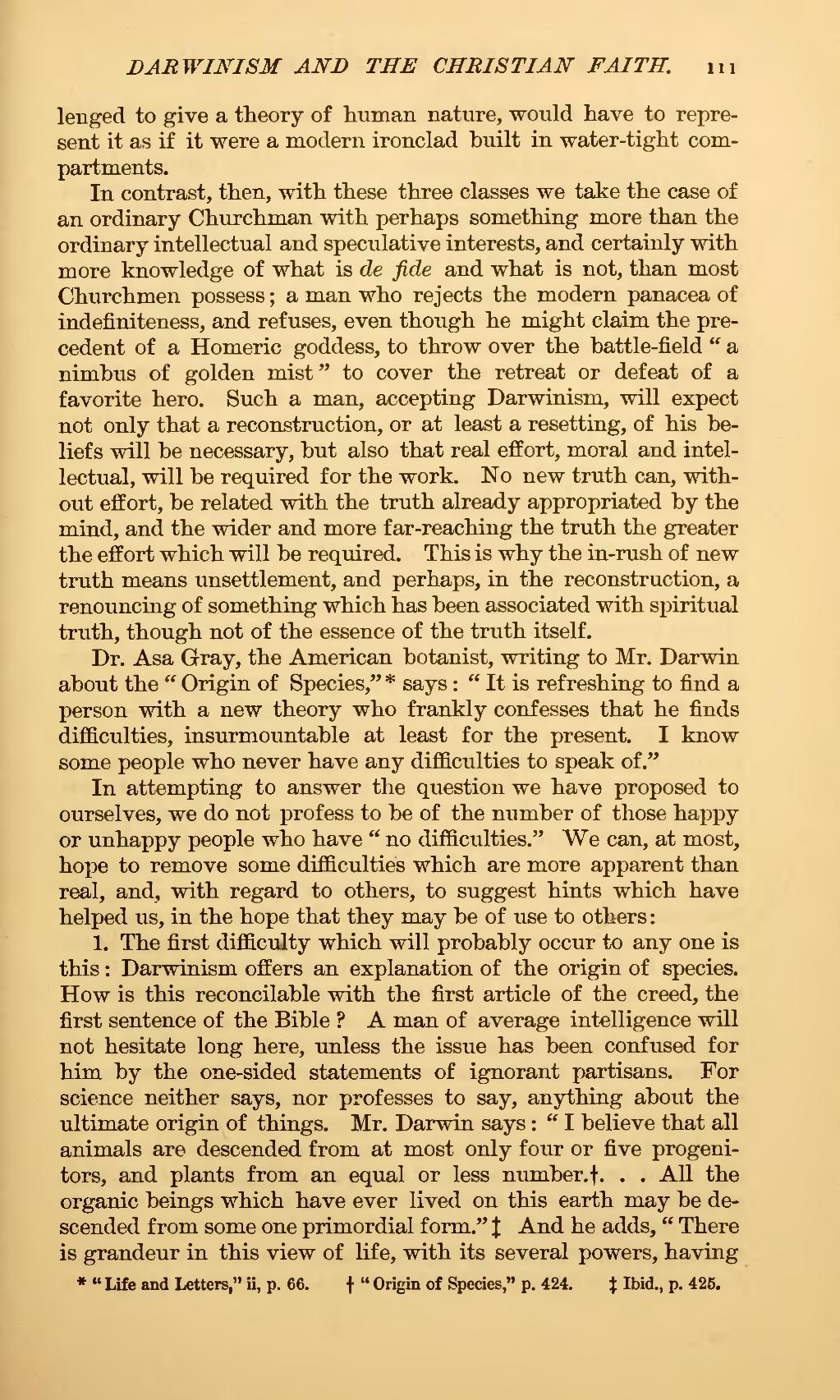lenged to give a theory of human nature, would have to represent it as if it were a modern ironclad built in water-tight compartments.
In contrast, then, with these three classes we take the case of an ordinary Churchman with perhaps something more than the ordinary intellectual and speculative interests, and certainly with more knowledge of what is de fide and what is not, than most Churchmen possess; a man who rejects the modern panacea of indefiniteness, and refuses, even though he might claim the precedent of a Homeric goddess, to throw over the battle-field "a nimbus of golden mist" to cover the retreat or defeat of a favorite hero. Such a man, accepting Darwinism, will expect not only that a reconstruction, or at least a resetting, of his beliefs will be necessary, but also that real effort, moral and intellectual, will be required for the work. No new truth can, without effort, be related with the truth already appropriated by the mind, and the wider and more far-reaching the truth the greater the effort which will be required. This is why the in-rush of new truth means unsettlement, and perhaps, in the reconstruction, a renouncing of something which has been associated with spiritual truth, though not of the essence of the truth itself.
Dr. Asa Gray, the American botanist, writing to Mr. Darwin about the "Origin of Species,"[1] says: "It is refreshing to find a person with a new theory who frankly confesses that he finds difficulties, insurmountable at least for the present. I know some people who never have any difficulties to speak of."
In attempting to answer the question we have proposed to ourselves, we do not profess to be of the number of those happy or unhappy people who have "no difficulties." We can, at most, hope to remove some difficulties which are more apparent than real, and, with regard to others, to suggest hints which have helped us, in the hope that they may be of use to others:
1. The first difficulty which will probably occur to any one is this: Darwinism offers an explanation of the origin of species. How is this reconcilable with the first article of the creed, the first sentence of the Bible? A man of average intelligence will not hesitate long here, unless the issue has been confused for him by the one-sided statements of ignorant partisans. For science neither says, nor professes to say, anything about the ultimate origin of things. Mr. Darwin says: "I believe that all animals are descended from at most only four or five progenitors, and plants from an equal or less number,[2]. . . All the organic beings which have ever lived on this earth may be descended from some one primordial form."[3] And he adds, "There is grandeur in this view of life, with its several powers, having

